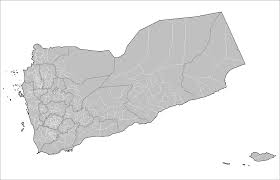
In a report published on Wednesday, IRIN highlighted the ever-increasing dangers faced by aid workers in Yemen, as kidnappings and targeted killings have become more than just occasional hazards.
“Since 2011 kidnappings have become much more aggressive, e.g. shooting against victims resisting kidnapping (including females), prolonged periods of captivity, political/ransom demands and ill-treatment of victims,” said Siris Hartkorn, head of risk analysis at the humanitarian consultancy Safer Yemen.
A country in complete security free fall, Yemen has witnessed more kidnappings in the past 12 months than it did over the past decades. Hardly has a month gone by over the past year without foreigners having become the target of disgruntled tribesmen or al-Qaeda operatives. Whether in the north where Houthi militants have taken into the habit of raiding “enemy” villages and blocking roads to assert control, or in the south where hordes of Islamic radicals roam the countryside, aid workers face deadly dangers.
Hartkorn told IRIN, ““In all types of security incidents facing NGOs [in Yemen], assailants are less accountable [compared to traditional tribal groups], levels of violence are higher, and incidents are becoming difficult to negotiate and solve.” In short, Yemen has become more unpredictable and therefore more dangerous.
While one could assume that organizations such as Doctors Without Borders or again the Red Cross should have become accustomed to operating in war-torn countries, due to the very nature of their work, aid workers have warned that Yemen had quite simply become unmanageable from a security standpoint.
Back in February, Doctors Without Borders (MSF) was forces to halt all activities after secessionists engaged in a series of attacks against the government forces in the southern province of al-Dhale, fearing for the lives of its staff. “A similar state of lawlessness compelled MSF to pull staff from its facilities in northern Amran Province last August,” wrote IRIN.